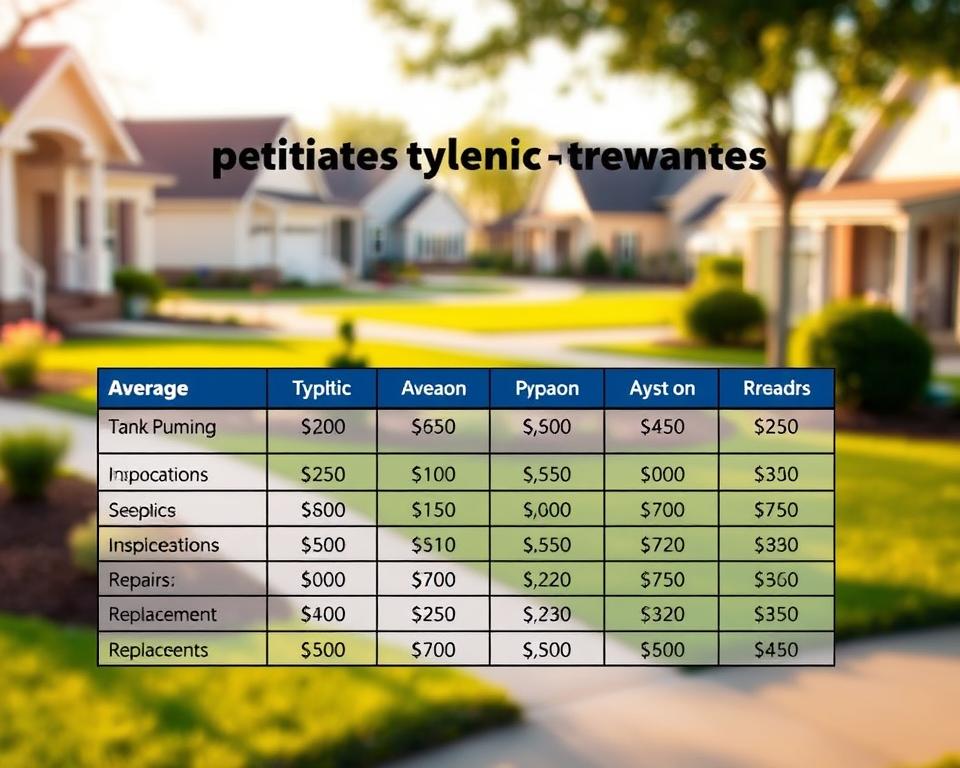Guide to Septic Tank Pump Out: Must-Know Advice & Guidance
Ever wondered just where your household waste flows after it exits your basin or WC? It’s processed by a properly maintained septic system. Understanding the significance of septic tank pump outs is essential for first-rate waste management within your residence. Overlooking this can result in backups and expensive remedies. Our guide seeks to show the necessity of septic servicing and routine pump outs. By calling on reputable septic services – septic tank inspection cost, you shield your residence, nature, and support your system’s long life.
Significant Notes
- Routine septic tank pump out prevents system failures and backups.
- Grasping your septic system supports effective maintenance.
- Planning a pump out is vital for effective waste management.
- Watch for indicators that show your septic tank is due for service.
- Selecting a certified service provider can enhance system efficiency.
- Booking septic tank cleaning services safeguards your home and the environment.
Why Septic Tank Pump Out Matters
Booking a septic tank pumping service regularly is crucial for your system’s durability and function. Over time, your tank collects solid waste and organic debris, which can trigger performance issues or even complete system failure. Without septic system maintenance, you could face obstructed pipes and failed drain fields – problems that often come with high costs and serious inconveniences for homeowners.
By having professional septic tank services handle regular maintenance, you guarantee your system functions properly. This measure not only sidesteps expensive repairs but also safeguards the soil and groundwater around your home from pollution. Choosing regular pump outs, you advance environmental health and benefit from a reliable and sound system for managing waste.
Septic System Basics
A typical septic system is pivotal in handling household wastewater. It’s constituted by the septic tank, drainfield, and soil – parts that function in tandem to effectively process waste. The septic tank provides a contained space for solid waste to dissolve biologically.
It’s important for homeowners to grasp how these units work. Preserving the septic system in prime form is vital to its longevity and effectiveness. Through regular inspections and servicing the septic tank when necessary, owners can sidestep expensive breakdowns that could result in serious health and environmental issues.
Consistently servicing your septic system protects your property and promotes public health. In the table below, view a table outlining the different septic system components and their functions:
| Component | Function |
|---|---|
| Septic Tank | Holds and breaks down solid waste through anaerobic bacteria. |
| Drainfield | Releases the treated effluent into the soil for further filtration. |
| Soil | Acts as a natural purifier to further treat wastewater. |
Appreciating these elements underscores the need for diligent septic system care. Effective operation relies on consistent maintenance and cleanings by homeowners.
How Often Should You Schedule a Pump Out?
Understanding when to get your septic tank pumped is crucial for its proper functioning. In most cases, a septic pump out should occur every 3 to 5 years. However, a variety of factors might adjust this schedule.
The household size in your home heavily influences the pumping frequency. Larger families mean more wastewater, creating a need for more frequent maintenance. Moreover, habits like lots of laundry or extended bathing might necessitate earlier pump outs. Being proactive can greatly extend your septic system’s life.
It’s wise to account for individual elements, such as tank size and daily water use, to keep a proper schedule. Remembering your last pump out date assists in timely planning for the next one, guaranteeing uninterrupted system performance.
Warning Signals for Pump Out
Homeowners should be alert for signs that suggest their septic tank requires service. Sluggish sinks and toilets often signal an full septic system, slowing the wastewater flow. Moreover, foul smells around your home could spell trouble; they may waft from the tank, signalling system failure.
Visible wastewater pooling in the yard is another major indicator. When you see wet spots or unexplained puddles, it’s likely your septic system is overloaded. Ignoring these signs can grow into more serious issues that disturb your home and become costly to resolve.
To avoid serious complications, timely maintenance is key. Calling in a professional service like All in Sanitation can be a wise decision. They can accurately diagnose and address these signs. This method not only fixes immediate issues but also supports your system’s efficiency and health.

Selecting a Pump Out Provider
It’s essential to pick a skilled septic tank pumping service to maintain your system performing properly. Trustworthy companies know the local regulations in depth, guaranteeing your septic system meets all requirements. A solid service, like All in Sanitation, is committed to disposing of waste responsibly. This is critical for the environment’s well-being.
When searching for the right septic service, consider these important aspects:
- Experience and Reputation: Aim for companies with positive feedback and proven success in your region.
- Licensing and Insurance: Confirm that your preferred provider has the proper license and insurance to cover unexpected problems.
- Comprehensive Services: Select a service that offers inspections with pumping, detecting issues before they escalate.
Paying for a high-calibre septic tank pumping service prevents costly future repairs. Routine evaluations and ongoing upkeep maintain your system in prime shape. Choosing wisely not only secures your investment but also sustains a robust waste management system for your home.
Cleaning Your Septic Tank
For homeowners, septic tank cleaning is vital to keep the system runs efficiently. During this process, removing sludge and scum is crucial to prevent blockages. A cleaned system not only runs smoothly but also endures. Performing regular cleanings is crucial for the health of your system.
A lot of households seek extra services to boost septic tank care. These extras are beneficial for destroying harmful bacteria and preventing residue build-up. Grasping the necessity of proper maintenance can prevent from expensive fixes. Remaining proactive in maintenance ensures both environmental safety and household well-being.
What Pumping Services Cost
Homeowners should understand septic tank pumping costs for efficient system maintenance. Prices differ widely due to location, tank size, and preferred service provider. On average, this service costs between $200 and $600. It’s smart to collect bids from multiple companies, considering both expertise and reliability.
Service providers like All in Sanitation offer competitive rates. Yet, the cost of septic tank cleaning mirrors service quality and thoroughness. Homeowners should weigh these aspects judiciously when choosing a service.
Comparing quotes assists sound decisions that fit your budget and septic system needs. Understanding potential costs helps with financial planning for septic tank upkeep.
Homeowner Maintenance Tips
Looking after your septic system properly is vital. It guarantees a long-lasting and efficient setup. By implementing easy steps, the longevity of your septic tank improves, while also saving money. Measures like cutting back on water wastage in your household are highly beneficial. Repairing leaks promptly and installing water-saving appliances are wise moves.
It’s crucial to refrain from flushing harmful substances down the drain. Chemicals, fats, or non-biodegradable items hurt your septic system. For the wellbeing of your setup, discard such waste properly. This approach safeguards your septic tank’s natural processes.
Regular inspections and the occasional pumping are non-negotiable for septic maintenance. Aim to have your system checked and serviced every three to five years. A maintenance schedule or checklist can be incredibly helpful. It supports you in tracking their system’s condition and adhering to maintenance guidelines.
Being proactive with septic maintenance brings financial and environmental gains. When you practice these habits, homeowners enhance their septic systems’ efficiency and dependability. This approach not only preserves your system but also supports a healthier environment.
Wrapping It Up
A septic tank pump out is essential for septic tank upkeep, and homeowners should consider it seriously. It avoids costly fixes and extends the system’s lifespan, allowing for effective operation over years. Recognizing when to address system distress signals safeguards your property.
Selecting a proven provider, like All in Sanitation, changes the game in septic tank care. Their expertise guarantees proper service, promoting both environmental health and your home’s comfort. Proactive maintenance protects your investment and promotes a greener planet.
Being knowledgeable about your septic system and its maintenance needs is vital. Routine pump outs boost home functionality and bolster public health. For any homeowner, understanding the importance of septic tank care ensures a problem-free living environment for the future.
